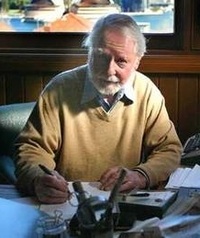
Jon Stephen Cleary was an Australian writer and novelist. He wrote numerous books, including The Sundowners (1951), a portrait of a rural family in the 1920s as they move from one job to the next, and The High Commissioner (1966), the first of a long series of popular detective fiction works featuring Sydney Police Inspector Scobie Malone. A number of Cleary's works have been the subject of film and television adaptations.

Nobody Runs Forever, also called The High Commissioner, is a 1968 British political neo noir spy thriller action film directed by Ralph Thomas and based on Jon Cleary's 1966 novel The High Commissioner. It stars Rod Taylor as Australian policeman Scobie Malone and Christopher Plummer as the Australian High Commissioner in Britain caught up in corrupt dealings, during delicate negotiations. Taylor's production company was involved in making the film, as was the American company Selmur Productions.

The Green Helmet is a 1961 British drama film directed by Michael Forlong starring Bill Travers, Ed Begley and Sid James. The film is centred on a British motor racing team. It is based on a 1957 novel by Australian author Jon Cleary.

The Sundowners is a 1952 novel by Australian writer Jon Cleary.

You Can't See 'Round Corners is a 1947 novel by Australian author Jon Cleary. It was his first published novel.
Scobie Malone is a fictional Sydney homicide detective created by Australian novelist Jon Cleary.

Justin Bayard is a 1955 novel by Australian author Jon Cleary about a policeman working in the Kimberley region. It was Cleary's sixth novel.
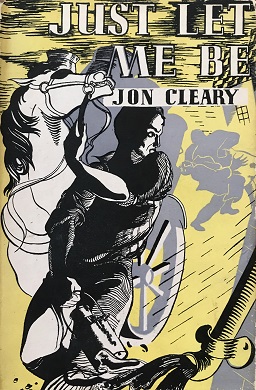
Just Let Me Be is a 1950 novel from Australian author Jon Cleary. It was his third published full-length novel.

North from Thursday is a 1960 novel from Australian author Jon Cleary. It is set in New Guinea and concerns the eruption of a volcano, forcing a group of survivors to flee across the country. The story is based on the 1951 eruption of Mount Lamington.

The Long Pursuit is a 1967 novel written by the Australian author Jon Cleary about the escape of a group of survivors from the Battle of Singapore in the Second World War, including a British soldier, an American engineer, an Australian soldier, an Italian auto distributor and a bank clerk, They run into a Dutch woman.

A Very Private War is a 1980 novel by Australian writer Jon Cleary about coastwatchers during World War II.
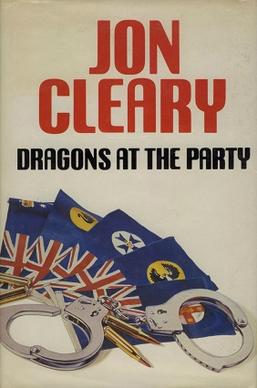
Dragons at the Party is a 1987 novel from Australian author Jon Cleary. It was the fourth book featuring Sydney homicide detective Scobie Malone, and marked the character's first appearance in print in fourteen years.
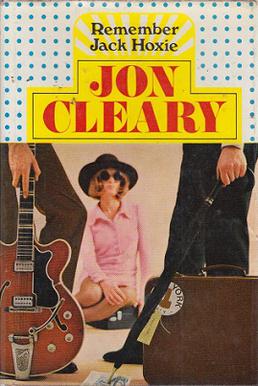
Remember Jack Hoxie is a 1969 novel written by Australian author Jon Cleary. It was a deliberate departure from the author after writing a series of adventure novels, being set in the world of pop music.

Mask of the Andes, also known as The Liberators in the US, is a 1971 novel written by Australian author Jon Cleary set in Bolivia.

For the song "Murder Song " by Nordic indietronica singer AURORA, see All My Demons Greeting Me as a Friend.
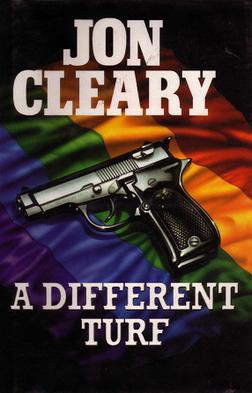
A Different Turf is a 1997 novel from Australian author Jon Cleary, the fourteenth book featuring Sydney detective Scobie Malone. A series of gay bashings have taken place throughout Sydney and someone is murdering the culprits. Cleary explored the psychology of serial killers from Australia's leading police profiler, Inspector Bronwyn Killmier, who inspired the character of Tilly Orbost.
Ned Kelly is a 1942 radio play by Douglas Stewart about the outlaw Ned Kelly. It was later adapted into a stage play which was in turn adapted for television.

These Small Glories was a collection of short stories by Australian author Jon Cleary which was published in 1946. They were set during World War II, during which Cleary had served in the Australian army.

Elisabeth MacIntyre was an Australian writer and illustrator. She mainly produced children's picture books and cartoon strips, but also created cartoon strips for adults and novels for young adults. She is recognised as "a staunch advocate of promoting Australian animals and surrounds in an era when the majority of children's books were imported from England". Her picture books appealed for their lively, bright illustrations and "irresistible", "infectious", stories, which used line and words economically and effectively. She was successful in the Australian, American and British markets, and some of her novels were also translated into German and Japanese. Her best known works are Ambrose Kangaroo, Susan, Who Lives in Australia, and Hugh's Zoo, for which she won the Australian Children's Book of the Year Award: Picture Book in 1965.

The Sundowners is a 1953 Australian radio serial based on the novel of the same name by Jon Cleary. It was a 15-minute morning serial for the ABC starting in April 1953 and played as a night-time serial in November of that year.


















